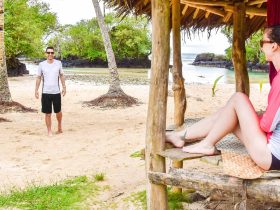The horse racing ecosystem, like all others, has been impacted by the coronavirus. Jockeys who participated in the rescheduled 146th Kentucky Derby a couple of weeks ago had to show up by the previous Monday – almost a full week before the races – and, afterward, isolate after getting back to their home tracks. This was only one of numerous changes the Covid-19 pandemic caused, and horse racing expert Adam Bjorn discusses how the industry is changing because of the coronavirus outbreak.
At first, Churchill Downs had proposed an appearance date of August 24 – about fourteen days before the Derby on September 5. Track authorities, however, threw in the towel after out-of-state jockeys and their operators communicated worries about losing rewarding business at home while being restricted in Louisville. The out-of-state riders previously had to take a COVID-19 test two weeks before race day and have the outcomes checked on by Churchill Downs. Their next required test came the Monday before the race at the track, trailed by a third test on September 3.
As a result, a portion of the game’s greatest names opted to take a pass on the Derby. Among them: New York-based Joel Rosario and siblings Irad and Jose Ortiz, and California-based Flavien Prat, who won a year ago with Country House after Maximum Security was disqualified (a case to reinstate Maximum Security’s win lost in U.S. Court of Appeals for the Sixth Circuit in August).
In some other years, scarcely any jockeys would think twice about losing an opportunity to ride in the Derby, a lifelong feature for most. However, the coronavirus is forcing many people to change their priorities and schedules, and traveling to the race has become less important. Competitors aren’t just concerned about the time they have to give up participating; they’re also concerned about not being able to return to where they were.
Ordinarily, jockeys from outside Kentucky show up a day or so before a significant race and afterward hop back on a plane that night or the following morning to return to where they were to ride on the next day’s card at their home track. Jumping on a high volume of horses is important to guarantee a living in a risky game without ensured contracts. However, travel and quarantine policies prevent them from immediately turning around and being able to return home and get back to the competition. This means that the fields have been smaller and most jockeys local, which is altering the horse racing landscape and causing jockeys to alter their strategies on the fly, especially when the field isn’t set until the post position draw.







Leave a Reply